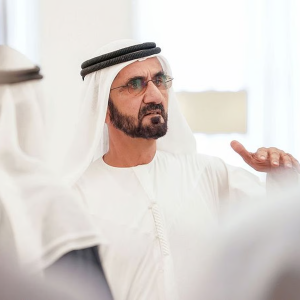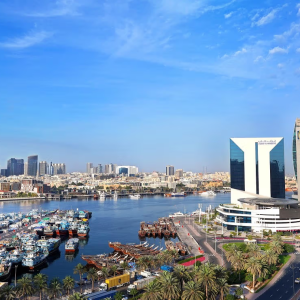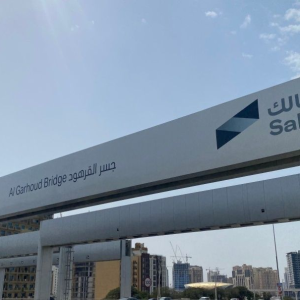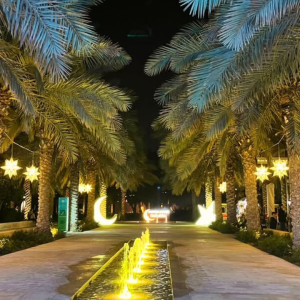Dubai is a land of opportunities, speed, and ambition. With skyscrapers reaching the clouds and a skyline of dreams, it attracts go-getters from all over the world. But under the surface of this fast-paced success culture, many professionals are quietly battling a growing crisis — burnout.
Burnout is more than just feeling tired. It’s a mental, emotional, and physical exhaustion caused by chronic stress, especially in demanding work environments. In Dubai, where competition is fierce and success is celebrated, burnout often hides behind designer suits, luxury cars, and tightly packed schedules.
As more professionals open up about their mental health, it’s becoming clear: burnout in high-pressure jobs in Dubai is not just common — it’s dangerously normalized.

Why Dubai’s Workforce is Vulnerable to Burnout
Dubai is a global hub of innovation, finance, tech, media, and real estate. That means long hours, high expectations, tight deadlines, and constant pressure to perform. Many professionals working in sectors like consulting, construction, marketing, hospitality, aviation, and finance are expected to give 110% — all the time.
Add to this the culture of hustle, status, and visibility, and the result is a work environment where rest is seen as weakness. The city’s “grind now, relax never” mentality is silently pushing people toward physical breakdowns and emotional fatigue.

Professionals in Dubai often juggle multiple roles — work stress, family responsibilities, visa renewals, and rising living costs. With little time for personal care or mental breaks, burnout begins to creep in unnoticed.
What Does Burnout Look Like?
Burnout doesn’t happen overnight. It builds up slowly. At first, it feels like just another stressful week. But over time, it becomes a pattern — one that affects your mood, body, relationships, and performance.
Here are the most common burnout symptoms being reported by professionals in Dubai:
1. Chronic Fatigue
You feel tired all the time, even after a full night’s sleep. You wake up drained, go to work with no energy, and crash the moment you return home. Weekends don’t help either. Nothing feels refreshing anymore.
2. Detachment from Work
You used to love your job — or at least enjoy parts of it. Now, it feels meaningless. You go through the motions but feel mentally checked out. Your creativity fades. You avoid tasks, calls, and sometimes even colleagues.
3. Increased Irritability
The smallest things trigger you — emails, traffic, even casual conversations. You find yourself snapping at coworkers or being impatient with your family. The frustration builds without a clear cause.
4. Anxiety and Overthinking
Your mind is always racing. You feel anxious before meetings, dread Monday mornings, and worry about things you can’t control. Even during downtime, your thoughts don’t stop. This mental clutter leads to sleep problems and emotional exhaustion.
5. Physical Symptoms
Burnout doesn’t just affect your brain. It can show up as headaches, stomach issues, frequent colds, muscle tension, and chest tightness. Many in Dubai ignore these signs, assuming it’s just “normal stress.”

6. Loss of Motivation
Things that once excited you — a new project, a performance bonus, or career growth — no longer spark any joy. You feel stuck, and sometimes even hopeless, like no matter what you do, it won’t be enough.
7. Social Withdrawal
You avoid friends. Cancel weekend plans. Skip family video calls. Socializing starts to feel like a task rather than a joy. Burnout often isolates people because they feel too exhausted to explain what’s wrong.
8. Dependence on Quick Fixes
To cope, many turn to caffeine, energy drinks, sleeping pills, or even alcohol. These temporary solutions create cycles that further damage mental and physical health.
The Dubai Dilemma: Burnout Hidden Behind Success
In Dubai, many people feel the pressure to look like they have it all figured out. The “perfect life” image is everywhere — from Instagram influencers to corporate executives. Admitting you’re tired or struggling is seen by some as weakness.
This stigma often forces professionals to hide their burnout symptoms. They dress well, smile through meetings, and continue chasing goals — all while silently breaking down inside.
This kind of emotional suppression is dangerous. It delays help and worsens the impact of burnout, leading to long-term consequences like depression, breakdowns, or complete withdrawal from work.
Industry-Specific Burnout: Who’s at Risk?
While burnout can hit anyone, some industries in Dubai are more vulnerable than others due to intense work demands, long shifts, and unrealistic expectations.
1. Corporate and Consulting Jobs:
Endless meetings, late nights, KPI pressure, and international clients make it difficult to switch off. High-performing professionals are often praised for overworking, not realizing they’re being slowly drained.
2. Hospitality and Events:
Hotels, restaurants, and events run around the clock in Dubai. Shift workers, chefs, event managers, and front desk staff often work irregular hours with limited days off — leading to physical and emotional exhaustion.
3. Media and Marketing:
From tight deadlines to social media pressure, the marketing world in Dubai is competitive and always “on.” The need to constantly be creative and visible wears people down fast.
4. Aviation and Cabin Crew:
Emirates and other airlines have high standards — and rightfully so. But for crew and ground staff, long-haul flights, jet lag, and time zone stress can lead to burnout in silence.
5. Tech and Startups:
The fast-paced tech scene often glorifies overwork. Founders, developers, and early employees work 12+ hour days to launch “the next big thing” — but at the cost of health.
Real Stories from Dubai’s Workforce
Ahmed, a senior finance analyst, said, “I kept pushing because I thought this was what success looked like. I’d work late, hit targets, and smile in meetings. But one day, I just broke down at my desk. I couldn’t move. That’s when I knew something was wrong.”
Maria, a hotel supervisor from the Philippines, shared, “I haven’t taken a real day off in months. When I’m not working, I’m worrying about work. My body aches. My sleep is poor. But I’m scared to ask for time off.”
Stories like these are becoming more common — and they highlight the urgent need for workplace reform and individual awareness in Dubai.
What Can You Do If You’re Experiencing Burnout?
Burnout recovery starts with awareness and honesty. Here’s what mental health professionals and wellness coaches in Dubai recommend:
1. Recognize the signs early
Don’t ignore the small signs — like brain fog or fatigue. Catching burnout early gives you more power to manage it before it spirals.
2. Talk to someone
Whether it’s a therapist, HR, coach, or close friend — speak up. You don’t need to go through burnout alone. Dubai has a growing number of affordable counseling centers and support groups.
3. Set healthy boundaries
Learn to say no. Block off personal time. Avoid checking emails after work. Set limits on weekend work. Your job shouldn’t consume your entire identity.
4. Prioritize sleep and nutrition
Your body needs rest and fuel. Lack of sleep only worsens burnout symptoms. Cut back on stimulants and focus on hydration and whole foods.
5. Take mini-breaks
Even a 10-minute walk or screen-free lunch can make a difference. Step away from your desk. Breathe. Stretch. Recharge.
6. Redefine success
Dubai often links success with money, status, or speed. But real success includes mental clarity, balance, and joy. You don’t need to burnout to prove your worth.
Is Your Workplace Helping or Hurting?
Burnout isn’t just a personal issue — it’s a company issue too. Organizations in Dubai must start taking mental health seriously. That means:
- Encouraging time off without guilt
- Providing access to therapy or wellness sessions
- Promoting flexible hours
- Creating a culture where rest is respected
- Training managers to recognize burnout symptoms
Some companies are already stepping up, offering mental health days, corporate wellness programs, and even on-site counselors. But more must follow.
Final Thoughts: You Don’t Have to Break to Belong
In a city as vibrant and fast-moving as Dubai, it’s easy to feel like you need to keep running to stay relevant. But burning out isn’t a badge of honor — it’s a warning sign.
Your health, joy, and peace matter just as much as your achievements. Whether you’re climbing the corporate ladder or building your own path, remember this: you can slow down without falling behind.
Burnout doesn’t mean you’re weak. It means you’ve been strong for too long without rest. And now, it’s time to choose yourself.
Follow us on instagram: UAE STORIES













